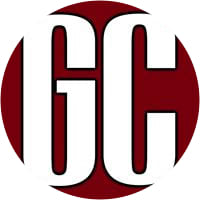The first four years
The advent of the bye week provided an opportunity to begin digging into some big picture storylines regarding Gamecock football.
This writer was surprised by one bit of statistical analysis I found, and so were many others in and around the industry once they heard the numbers.
Steve Spurrier – rightfully regarded as a college football legend and the best football coach in Gamecock athletics history – carried the same conference record and wins against top 25 opponents as Will Muschamp after 4 seasons in Columbia.
For the purposes of the comparison, I set a baseline before looking at any of the figures. In terms of top 25 rankings, I used postseason polls, and the coaches poll instead of the AP. A given team’s ranking at the end of the season, while there’s room for argument, certainly has more teeth and accuracy behind it than a preseason ranking, before a single game is played. Here’s the raw data from each coach’s first four seasons:

STEVE SPURRIER
Record against postseason top 25 opponents from 2005-2009: 3-16
Overall SEC record from 2005-2009: 15-17
SEC year over year record breakdown: 5-3, 3-5, 3-5, 4-4
Record against Clemson: 1-3
Record against Georgia: 1-3
Record against Florida: 1-3
Record against Tennessee: 2-2
WILL MUSCHAMP
Record against postseason top 25 opponents from 2016-2019: 3-14
Overall SEC record from 2016-2019: 15-17
SEC year over year record breakdown: 3-5, 5-3, 4-4, 3-5
Record against Clemson: 0-4
Record against Georgia: 1-3
Record against Florida: 1-3
Record against Tennessee: 3-1
Let’s dive into them a bit, shall we?
*** It’s been said by many that Spurrier’s program, despite an average overall start, was still trending upward heading into year 5. The team indeed didn’t sport a losing record in any of the HBC’s four seasons and had improved to a 4-4 conference record after posting back-to-back 3-win conference campaigns in 2006 and 2007. An overall positive trend? That was a bit harder to find after 2008.
In that fourth year, the Gamecocks lost to Vanderbilt for the second year in a row and finished 1-3 against opponents that finished the season ranked. After the team began 7-3, USC dropped 3 straight to end the year, including a flat showing against Iowa in the Outback Bowl. One of those losses was to Clemson in Death Valley, which propelled an interim coach named Dabo Swinney to the head coaching post.
The mood in Columbia was not exactly chipper at that point. Privately, administrators at the university wondered if things were going to work out, and fans were, to put it mildly, peeved. Sound familiar? There were a few things that a hat could be hung upon to hope for future improvement, though.
One was, quite simply, this: Spurrier was Spurrier. He was proven to be one of the game’s best coaches at the college level. It had not clicked so far, but could he turn it around if the right pieces got into place? He eventually did, but at the time, it was a question.
Another reason for hope was on the recruiting trail. South Carolina brought in a recruiting class for the 2009 cycle that led to some excitement, and rightfully so. While some of the more highly-regarded prospects may not have panned out, plenty did. This group included Alshon Jeffery, Stephon Gilmore, DeVonte Holloman, Justice Cunningham, DJ Swearinger, Chaz Sutton, Josh Dickerson, Tony Straughter, Rokevious Watkins, and Jimmy Legree – players that would go on to help form the foundation of teams that turned the corner. Some of those players helped immediately in 2009, some helped later.
Third: Spurrier’s coaching staff underwent a transformation following the 2009 season. Spurrier fired offensive line coach John Hunt, who had coached with him at Florida and in the NFL with the Washington Redskins.
Running backs coach Robert Gillespie departed for a job at Oklahoma State. Recruiting coordinator and quarterbacks coach David Reaves joined Lane Kiffin in Tennessee, as did strength and conditioning director Mark Smith. Secondary coach Ron Cooper took a post at LSU, and special teams assistant Ray Rychleski packed up to head to the NFL’s Indianapolis Colts.
Spurrier already had some key assistants on his staff in Shane Beamer (who joined in 2007) and Ellis Johnson (2008) who would play significant roles in the rebuild. In the 2009 offseason, Spurrier tabbed Jay Graham (running backs), Lorenzo Ward (secondary), Jeep Hunter (tight ends), Eric Wolford (offensive line), GA Mangus (quarterbacks), and Craig Fitzgerald (strength and conditioning) to fill the empty posts.
Beginning in 2010, of the individual pieces previously recruited by Spurrier began to really shine in later seasons once the right combination of players and coaches was found. The existing players successfully integrating with newer pieces along the way like five-star back Marcus Lattimore during the Gamecocks’ sole SEC East divisional title season and later. Guys like Stephen Garcia (2007 class), Devin Taylor (08), Cliff Matthews (07), Ladi Ajiboye (07), Travian Robertson (07), TJ Johnson (08), and Patrick DiMarco (07), for starters, who were around for some of the earlier seasons continued to develop and played integral roles in 2010 – and some, beyond.
The payoffs were not immediate even after the 2009 recruiting class and staff changes. There were some positives for the 2009 season. Carolina scored a win over Ole Miss at home that triggered the birth of “Sandstorm”, although Ole Miss finished the year ranked 21st instead of the top five team that came into Columbia. Carolina dropped games to top three teams in Alabama and Florida. A win over Clemson at Williams-Brice began an eventual five-game winning streak over Dabo Swinney’s squad, although the Tigers did not finish the year as a ranked team.
At the end, it was a 7-5 regular season for the Gamecocks, who also lost to Georgia, Tennessee, and Arkansas on the road that season to post a 3-5 conference record. The year’s final game was the PapaJohns.com Bowl, a 20-7 loss widely considered one of the more miserable days in Carolina football history. It was a long offseason, and despite the wins over Ole Miss and Clemson, it was not a happy time in Columbia. It wasn’t good enough, nor should the fans have considered it good enough. Spurrier would soon make it good enough.
Connor Shaw and Dylan Thompson were brought in as part of USC’s 2010 class, and a guy named Jadeveon Clowney in 2011. While Spurrier didn’t fundamentally change who he was as a coach, he adjusted his offensive philosophies. He eventually found quality quarterback play, an elite running back, and an outstanding defense.
You know the rest.
** Why are we diving into all this, you may ask?
Some Gamecock fans have decided that they’re finished with the current era, just as some decided that after Spurrier’s first four seasons – or at other various points in his tenure – and that’s perfectly within any fan’s right. We know Muschamp’s first four years – just as with Steve Spurrier – do not ultimately live up to what anyone associated with the program hopes to see.
With Spurrier, he arrived in Columbia with a sparkling pedigree, mostly related to his work in making Florida a national power. Will Muschamp also coached at Florida and his tenure did not go as Spurrier’s did. Despite first-four-year records for both being almost uncannily similar at South Carolina, some fans view it through a lens. Spurrier’s early struggles were perhaps an aberration, maybe something that would just take more time to turn around, or just evidence that nobody could get it done in Columbia. Any Muschamp struggles – by some - are just viewed as an extension or repeat of his time at Florida. What happens in the next, say, 15-18 Gamecock football games will either change or reinforce that lens. With Spurrier, the first four years are not remembered or emphasized as much in hindsight because we can look back and see the victories that were eventually found.
Spurrier’s accomplishments did help set the table for the future of whoever else would follow at USC in some ways. He showed USC could make it to Atlanta, that the team could post double-digit win seasons more than just “every now and then.” He beat Clemson five years in a row, even when Clemson was a very good team (although not great as it is now).
The level of excitement he created helped lead to even more money and even better facilities being created. It’s also completely fair to point out that things fell off at the end of Spurrier’s record-setting tenure and that his last (partial) season ended with a 3-win squad. Thus, Muschamp (or whoever else USC had hired) inherited a difficult situation and one that was further aggravated by the fact that Clemson had turned elite and won a national title the following season.
Interestingly, the offseason leading up to Will Muschamp’s fifth season in Columbia also brought change, including a proven offensive coordinator who's been elusive to this point. There’s a 2020 recruiting class that featured some highly-regarded players, including a pair of five-stars, which had not happened since 2005 - although one did not get to play this season in MarShawn Lloyd.
There was also some coaching turnover. Defensive line coach John Scott Jr. left to take a job at Penn State. He was replaced with SEC veteran Tracy Rocker, whom Muschamp had tried previously to hire at South Carolina. Bobo was brought on to call plays and coach quarterbacks, and young assistant Joe Cox joined him in Columbia.
One of Muschamp’s initial hires at USC, receivers coach (and former OC) Bryan McClendon left to take a post at Oregon under Mario Cristobal. Longtime assistant Coleman Hutzler took a position at Texas. Muschamp tabbed SC native Des Kitchings to coach running backs and also brought on former USC linebacker Rod Wilson to coach linebackers, shuffling some other responsibilities on the staff for existing coaches.
The 2020 season is halfway finished, and although we can guess or estimate how it may turn out, we don’t really know. It’s a waste of time to discuss a midseason change this year, because that will not happen. The question then becomes whether or not South Carolina can post a solid finish to this campaign in the back half of the schedule, and then what happens next season. Coming into this year, the behind the scenes fact was that a change was unlikely after 2020, and that remains the case after the first half of the season.
The record the first four years is what it is; we have already litigated and re-litigated the reasons this has happened, the mistakes, and any spots of good that have resulted. At some point, it will either turn in a more positive direction or it will not. The middle of this season may not be a time in which that can be definitively measured.
Year five is going to play out, so let's see what happens.
***

